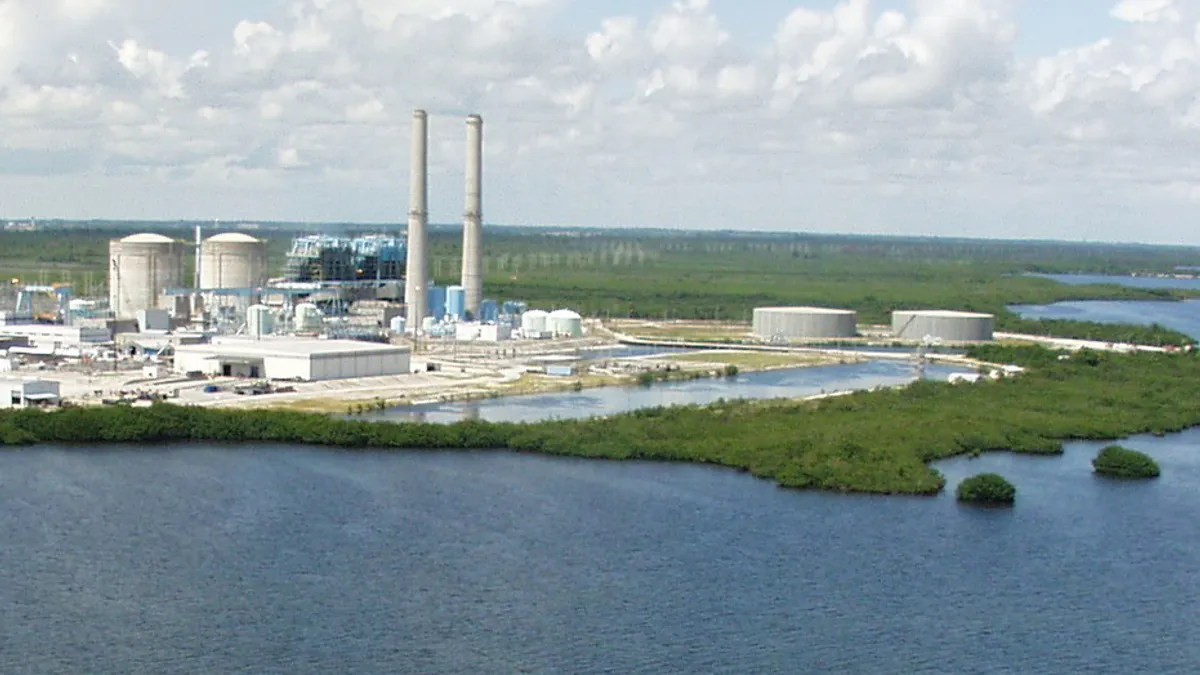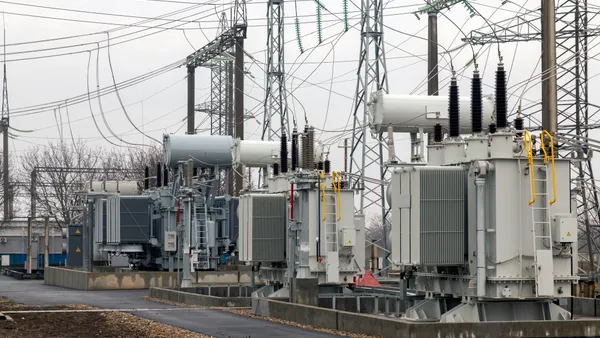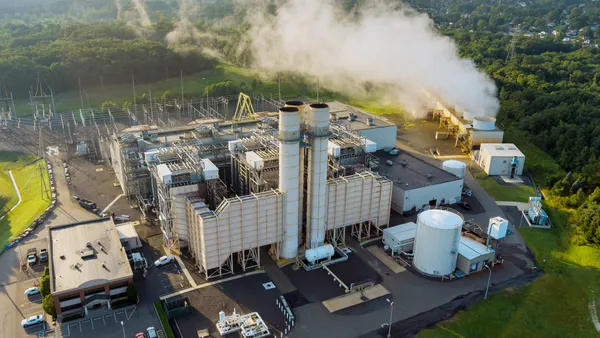Dive Brief:
- The 3rd District Court of Appeal in Miami has reversed a 2014 decision by Florida Gov. Rick Scott (R), warning that Florida Power & Light's plan to add two new reactors at its Turkey Point nuclear facility near Everglades National Park could have serious environmental implications, Florida Politics reports.
- Two years ago, Scott and a special panel gave their approval for Florida Power & Light’s proposal to add two 1,100-megawatt units to serve the growing Miami metro area.
- Critics of the project have raised several objections, particularly related to 90 miles of transmission line that would be necessary to bring the new power to customers. The court found FPL should be required to bury the transmission lines, among other changes proposed.
Dive Insight:
FPL's Turkey Point nuclear facility has been under the spotlight lately due to its aging cooling canals leaking a salt plume into Biscayne Bay, the Miami Herald reports. Now more concerns over environmental impacts could scuttle the utility's plans to build additional units.
The 3rd District Court has returned a decision largely opposite of what Florida officials came up with in 2014 – that extensive mitigation will be required before FPL's new nuclear units could be constructed. Florida Politics reports on the decision, noting the judge took issue with: the project's transmission lines, bird mitigation measures, a proposal to fill in more than 100 acres of right-of-way, and the proposal's failure to abide by local development standards.
“FPL presented no competent substantial evidence that the project could satisfy the environmental performance standards” the judges wrote in their decision.
Florida Power & Light told Florida Politics that it was disappointed by the decision and was reviewing its legal options. The judge recommended Gov. Scott reconsider the state's decision.
The proposal previously won approval from the Florida Public Service Commission and the state's Department of Environmental Protection but cannot be built without approval from the Nuclear Regulatory Commission. Previously, Miami City Attorney Victoria Mendez urged Scott and the panel to either deny certification, delay it until the NRC and other permitting agencies approve, or modify the agreement to require underground transmission lines.
According to FPL, the two units will cost between $12.8 billion and $18.7 billion and be ready for service in 2022 or 2023.














